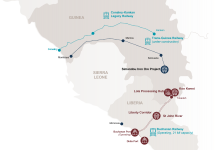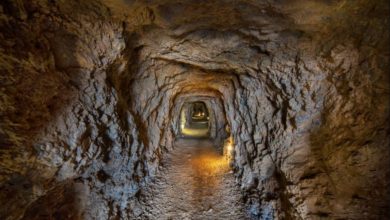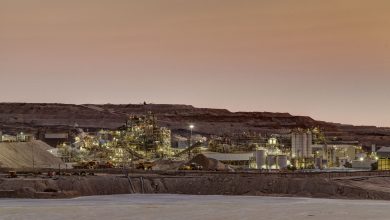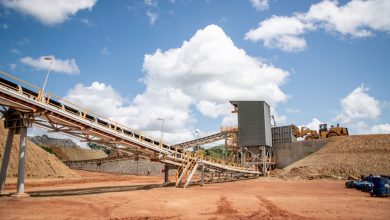IDC funding released for metallurgical phase of Steenkampskraal rare earths project
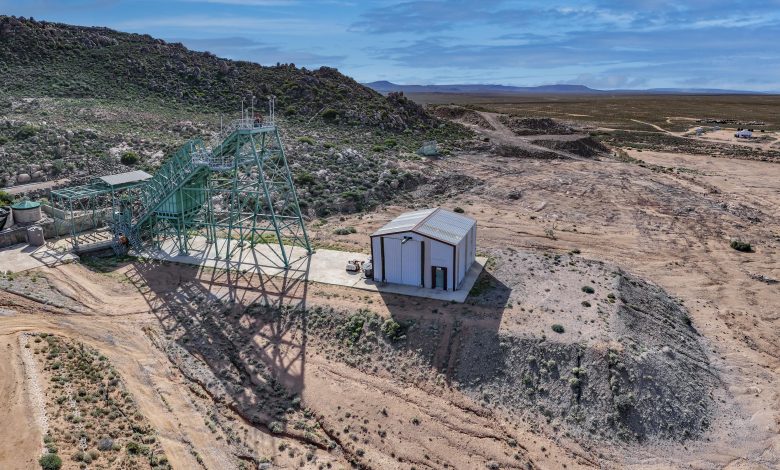
Steenkampskraal Monazite Mine (SMM), one of the world’s highest-grade rare earth and thorium deposits, has confirmed receipt of the first tranche of funding from the Industrial Development Corporation (IDC) for construction of the mine’s Phase 1 Metallurgical Implementation.
“This first tranche marks a major milestone in progressing SMM toward steady-state production of Monazite Concentrate as Phase 1 of the company’s broader production strategy. This is the first of four tranches to be provided by the IDC that will cover the construction of the phase 1 concentration plant,” said Steenkampskraal Chairperson and shareholder, Dr. Enock Mathebula.
Subsequent phases include:
Phase 2: Production of a Cerium- and Lanthanum-depleted Mixed Rare Earth Carbonate (CLDMREC) utilising proven technology provided and operated by Chimerical Technology (Pty) Limited.
Phase 3: Rare Earth Element (REE) separation on or near the mine site utilising breakthrough Magneto-electrochemical separation processes in a proposed partnership with the Remedy Group.
Phase 4: Fluorination process on or near the mine site utilising a patented process to produce Rare Earth Fluorides through a proposed partnership with Rare Earth Refiners.
Phase 5: Metallization on or near the mine site under discussion with selected global reduction companies.
Phase 6: Production of various separated end-products on or near the mine site under discussion with selected global RE products.
“The Phase 1 Metallurgical plant will continually deliver high-grade monazite concentrate containing more than 50% Total Rare Earth Oxides (TREO) at one of the industry’s lowest cost per tonne due to Steenkampskraal’s high grade reserves and low cost of production.
“With an average run of mine grade of 14.4% and an average contained TREO percentage grade as high as 40%-50%, the longer-term strategy is to add further value through local beneficiation across the various phases and finally produce end-products locally, thereby positioning South Africa among the elite producers of critical minerals,” said Dr. Mathebula.
“These milestones mark a turning point in Steenkampskraal’s history to establish itself as a reliable global supplier of rare earth elements, essential for the technologies driving the green transition and advanced industries,” Dr. Mathebula added.
“The IDC’s investment is not only a financial boost but also a catalyst for broader economic benefits. Through this support, Steenkampskraal is strengthening South Africa’s industrial base, creating employment opportunities in both direct mining operations and downstream beneficiation,” added Graham Soden, CEO of SMM.
“As indicated, the Steenkampskraal project is structured as a series of interlinked phases, each designed to capture additional value by moving further downstream in the rare earth supply chain.”
Thor Medical, working closely with Steenkampskraal and select local funders, are in the process of concluding agreements to allow the business to progress with the additional planned Phases which include the harvesting of Radium-228 for targeted Alpha therepy in the treatment of cancer.
Referring to Steenkampskraal’s participation in the 9th Tokyo International Conference on African Development (TICAD-9), hosted in Yokohama, Japan, Dr. Mathebula highlighted to business attendees that South Africa’s official Minerals Beneficiation Strategy, adopted in June 2011, seeks to transform the country’s mineral wealth into a competitive economic advantage through downstream value addition.
This strategy is integrated into broader industrialisation initiatives aimed at improving export quality, creating sustainable employment, diversifying the economy and building a knowledge-driven industrial base.
“Through the systematic implementation of these phases, SMM intends to move progressively up the value chain in line with the Minerals Beneficiation Strategy. Our goal is to maximise value retention within South Africa’s borders and to position the country as a leading participant in the global rare earths industry.”
“The IDC, a state-owned development finance institution established in 1940, plays a central role in promoting economic growth and industrial development in South Africa and across the continent. It provides funding to businesses and projects that expand industrial capacity, stimulate job creation, and drive economic transformation,” Dr. Mathebula concluded.


